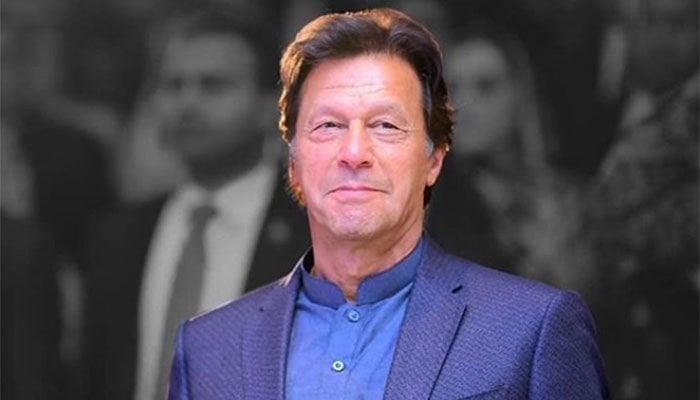Prime Minister Imran Khan: The lucky captain?
PM Imran Khan has only a little over a year to fulfil the promises he made to the country
June 10, 2021

Prime Minister Imran Khan is lucky. How? Well for one, his government will enter into its fourth year in August, after it tables its third budget on Friday. This it has achieved without facing any formidable challenge from an opposition that has largely remained divided.
It is indeed a positive sign.
An elected, civilian government is on its way to complete its five-year tenure, as did the Pakistan Peoples Party’s (PPP) and Pakistan Muslim League-Nawaz’s (PML-N) governments before it.
In 2023, the people of the country will again be given a chance to judge a ruling party on the basis of its performance, although third force interference in elections is an area which has still not been addressed.
But in an effort to ensure free and fair elections, the governing Pakistan Tehreek-e-Insaf (PTI) is pushing for broad electoral reforms, which would be a mistake on the part of the opposition to boycott.
Read more: Missing the forest for the trees
Electoral reforms are in the interest of all political parties in Pakistan. For this, it would be wise for the opposition to prepare its own draft of suggestions to debate in Parliament, especially on how an infrastructure for electronic voting machines can be set up and how overseas Pakistanis can be enfranchised.
But coming back to the tenure of this government, if Prime Minister Imran Khan completes his five-year-term, he will make history as the first premier in Pakistan’s 74 years to complete his term.
Khan’s PTI is no stranger to making electoral history. Earlier, it set a record in Khyber Pakhtunkhwa to become the first political party to be elected to government from a second term. Not only that, it secured more seats in the province in 2018 than it did in 2013.
Now, what has helped Khan stay in power?
For one, the opposition. The opposition alliance, cobbled together last year, has remained the weakest any civilian government has ever confronted since 1970.
Even after winning the 2018 election, forming a government in the federal and in Punjab was an uphill task for Khan’s party as it needed the help of allies. But even that was made easier for it by the opposition which did not do much to block his ascend to power, primarily because of a trust deficit between Nawaz Sharif and Asif Ali Zardari.
With a divided opposition, Khan benefited immensely.
Another reason Khan was lucky was that he was handed over a country that was far more secure, in terms of security, than the one the PPP and PML-N had to rule over.
Cases of terrorism were down and overall the law and order situation had improved in 2018. Had Imran Khan been in power in 2008 or 2013 he would not have been able to decide on action in North Waziristan, South Waziristan, Malakand, Swat or even Karachi to root out terrorists.
And even if he had taken the decision, his party would have faced retaliation the kind the PPP and the Awami National Party faced in the run up to the polls, which saw many of their leaders killed.
So, till now, it has been an easier ride, but there is one challenge for Khan and it is a big one – performance.
Imran Khan has only a little over a year to fulfil the promises he made to the country. Although he is confident on the economic front, it is still unclear how he will provide 10 million jobs and five million homes by 2023. There is also not much time left for the police, civil service and judicial reforms he vowed to bring.
The government health cards and insurance has provided relief to the people, but the unprecedented rise in prices of basic commodities, especially medicines, would come to haunt him in 2023.
Even if the PTI blames the past government for their failings now, it is important for the party to remember that in the next polls the PTI will be judged on its own five-year-term, not that of the PPP’s or the PML-N’s before it.
If the recent by-polls are any indication, the PTI is in for a tough fight. The PPP and PML-N seem to be holding strong in their respective constituencies in Sindh and Punjab.
Read more: Is Pakistan doing enough to attract foreign investments?
For now, one can say that cricketer-turned-politician Imran Khan is a success story. His record in cricket and social work has been such that he has not had to look back. But will his success in politics be the same? 2023 will tell.
Abbas is a senior columnist and analyst of GEO, The News and Jang. He tweets @MazharAbbasGEO











